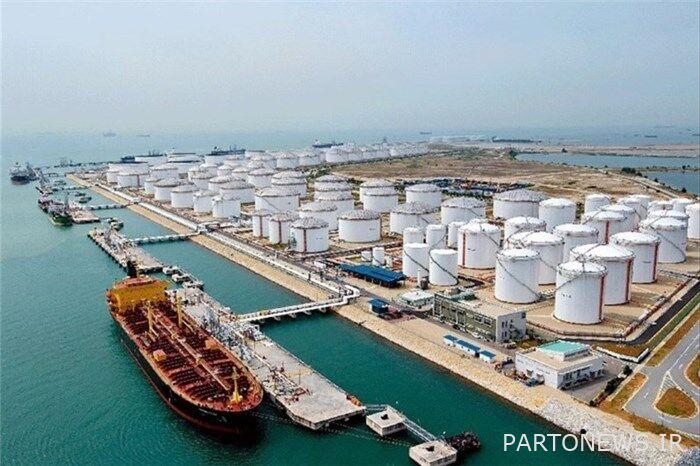Reducing the cost of production of oil products by swapping Kazakhstan’s oil from Iran

According to IRNA, Iran’s strategic position in the Middle East is unique compared to other neighboring countries. On the one hand, Iran is connected to the countries of Central Asia and the shores of the Persian Gulf through about 1,000 kilometers of the Caspian Sea coast, and on the other hand, it has about 5,000 kilometers of coast in its south with the ability to access open waters.
On the other hand, the network of Iranian oil and gas pipelines has spread throughout the country and has provided communication from the north to the south of the country as a coherent network.
The pipelines that were built with the main purpose of supplying the fuel needed by the country to deliver the oil and gas produced in the south to the consumption destinations that are mostly concentrated in the north and west of the country.
However, these benefits can be used in other cases to bring income in addition to reducing the country’s expenses.
One of these cases is the oil swap from Caspian countries to the Persian Gulf. An issue that has been of interest in the country for years and the creation of the necessary infrastructure in Neka port to receive and unload oil also shows that Iran has been looking for oil swap and using its benefits for more than a decade.
Of course, the oil swap has been neglected in all these years and in different governments, and the infrastructures of the Neka port have also remained unused.
However, the 13th government, which came to work with the priority of developing cooperation with neighboring countries and promoting energy diplomacy without tying it to the JCPOA, has put the use of this capacity on its agenda.
For this reason, Seyed Ebrahim Raisi, the President of the Islamic Republic of Iran, while visiting Kazakhstan last week, pointed out that the process of oil swap between Iran and Kazakhstan had started about 10 years ago, and said: But it was stopped due to some problems. And now, during the trip to this country, an agreement was reached.
He emphasized that Kazakhstan’s oil swap, in addition to reducing the cost of Iran’s oil transit from south to north to supply feed to Tehran and Tabriz refineries, will give Iran a swap right and is a double-win game for the country.
In fact, with the Kazakhstan oil swap, Iran will not only develop its position in the energy relations of the region and the world, but also benefit from its economic benefits.
Mohsen Qomsari, the former director of international affairs of the National Iranian Oil Company, in an interview with IRNA’s economic reporter, emphasized that the oil swap between the two countries is a puzzle and said: With the Kazakhstan oil swap through Iran, we can consume oil in the northern refineries and in To export the oil produced in the south.
Pointing out that this will reduce the cost of transporting oil to the north of the country for refining in Tehran and Tabriz refineries, he added: “In only one case, we will see a reduction in cost and electricity consumption in oil transfer pump houses.”
According to the former director of international affairs of the National Iranian Oil Company, this will reduce the cost of producing petroleum products in the country.
Qamsari continued: Also, Iran will receive a swap fee for Kazakhstan’s oil swap.
Of course, he emphasized that due to Iran’s restrictions on oil exports due to sanctions, Kazakhstan should introduce its oil customer so that the country’s oil swap does not disrupt Iran’s oil exports and its volume.
The former director of international affairs of the National Iranian Oil Company said: “In order to reduce this damage during the swap, Kazakhstan should bring its own market.”
He added: “It would be better if we converted the swap to transit because there was no responsibility for the sale and export of oil from Iran.”
Pointing out that Iran has the necessary infrastructure for swapping or transiting the oil of Caspian Sea countries, Qomsari continued: “There is a suitable infrastructure in Neka port that can receive and transfer oil to Tehran.”
According to Qamsari, these infrastructures have been created for more than 10 years, but they have not been used.
He emphasized: We must use Iran’s territorial advantage, which has been neglected for years.

